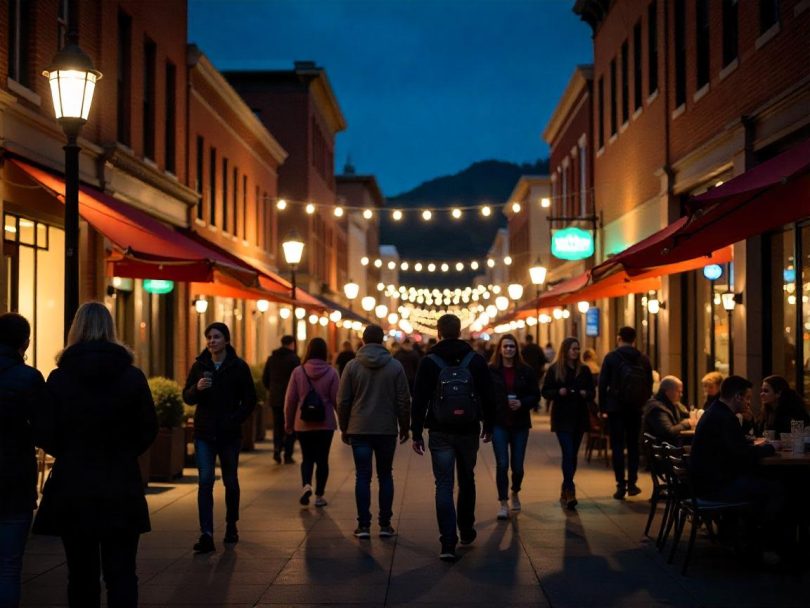Thursday, June 19, 2025
Vermont’s tourism industry has been feeling the repercussions of President Donald Trump’s controversial rhetoric, which has led to a significant drop in Canadian visitors. As tensions between the U.S. and Canada continue to escalate, many Canadians are choosing to stay home instead of traveling to Vermont, a destination that has long attracted travelers from across the border.
How the Boycott Began
Vermont, particularly its northern areas, has traditionally been a popular spot for Canadian tourists. The state receives around 750,000 visitors from Canada annually, and Canadians contribute roughly $150 million to Vermont’s economy. However, over the past several months, the situation has changed drastically. President Trump’s rhetoric and policies, including his tariffs and jabs at Canada, have sparked widespread dissatisfaction in Canada, leading to a grassroots boycott movement. This boycott has led many Canadians to steer clear of U.S. destinations, including Vermont.
Impact on Vermont Tourism
The effects of this boycott have been swift and noticeable. According to the Vermont Department of Tourism and Marketing, Canadians make up about a quarter of the state’s annual tourism traffic. But this has dropped significantly, with border crossings from Canada into Vermont decreasing by as much as 30% in recent months. The loss is especially severe for northern Vermont, where many businesses depend heavily on Canadian tourism. The situation is further compounded by a steep decline in hotel reservations, with some establishments reporting a drop of up to 45% in bookings from Canadian tourists since February.
Key facts about the downturn include:
- A 25-30% decrease in website traffic from Canada to Hill Farmstead Brewery in Greensboro.
- Ski pass sales to Canadians at Jay Peak Resort have fallen by 35%.
- Overall Canadian tourism to the state has decreased significantly, with some areas seeing fewer than half the usual number of visitors.
How This Affects Local Businesses
For local businesses that thrive on cross-border tourism, the loss of Canadian visitors is a major blow. Jay Peak Resort, a popular ski destination in Vermont, usually sees a large portion of its customers from Canada. However, in 2025, the resort has seen sharp declines in ski season pass sales and cancellations from Canadian visitors who typically book golf and other activities.
Other Vermont attractions, such as the Kingdom Trails mountain biking network, have also felt the sting of the boycott. With fewer Canadians visiting, businesses are struggling to make up for the lost revenue.
The Continuing Decline in Canadian Visitors
The trend of declining Canadian visitors is expected to persist as the political climate remains tense. A recent survey by the Canadian Automobile Association showed that only 4% of Quebecers plan to visit the U.S. this summer, compared to 12% in the previous year. As many Canadians cite President Trump’s actions and rhetoric as a reason for staying away, this has led to an ongoing decline in cross-border tourism. Even though tariffs have been adjusted or paused, the damage to the relationship between the two countries has been done, with many Canadians choosing to spend their travel dollars within Canada rather than the U.S.
Efforts to Revive Vermont Tourism
Despite the ongoing challenges, Vermont’s tourism industry is not giving up. Local officials and business owners are exploring ways to repair the damage caused by the boycott. Vermont Governor Phil Scott has met with leaders from several Canadian provinces, discussing potential ways to ease tensions and encourage more Canadians to visit. At the local level, businesses are trying to maintain their ties with Canadian tourists through gestures of goodwill and outreach.
For example:
- Burlington City Council renamed Church Street Canada Street for the summer as a sign of solidarity.
- Tourism leaders from northern Vermont traveled to Quebec to discuss ways to rebuild tourism relationships.
These efforts aim to strengthen the ties between Vermont and Canada, hoping to reverse the current trends and bring Canadian tourists back to the state.
The Road to Recovery for Vermont’s Tourism Industry
While Vermont faces a challenging period ahead, the state’s tourism industry is determined to bounce back. Efforts to rebuild cross-border connections are critical to reversing the current decline in tourism. Vermont tourism leaders are optimistic that with continued collaboration and targeted outreach, they can reignite the flow of Canadian visitors and bring life back to the state’s northern regions.
Key Takeaways:
- Vermont tourism has suffered a significant decline due to the boycott sparked by President Trump’s rhetoric.
- Canadian tourism has dropped by as much as 30% in Vermont, especially in the northern areas.
- Border tourism has been impacted by tariffs and anti-Canada remarks made by Trump.
- Local businesses like Jay Peak Resort and Hill Farmstead Brewery have seen sharp declines in sales and reservations.
- Vermont officials are working on initiatives to revive tourism and strengthen ties with Canada.
In conclusion, the ongoing tourism boycott and declining Vermont economy present serious challenges for the state. However, with continued efforts to rebuild relationships, Vermont’s tourism industry hopes to recover and continue benefiting from the strong ties with Canadian tourists that have long been an economic cornerstone for the state.











